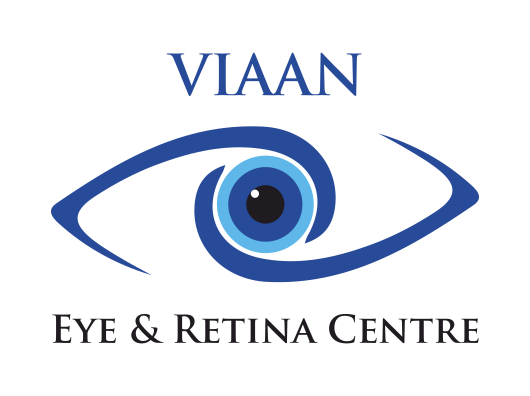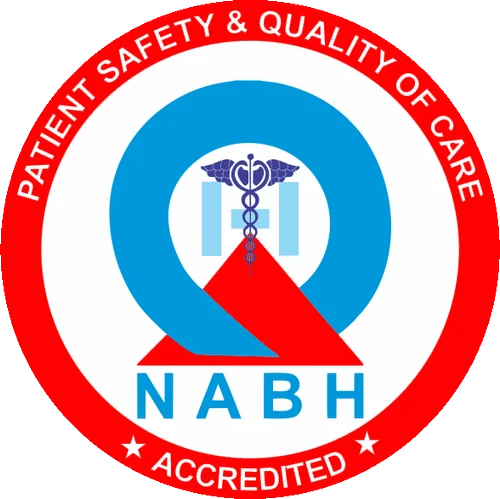As we grow older, many changes happen inside our body. One important part that often gets affected is our eyes. You may notice that your vision is not as sharp as before. You may struggle to read books, see faraway objects clearly, or drive at night. These changes are not unusual. In fact, they are signs of old age eye problems that become more common after the age of 50.
The good news is that many of these problems can be prevented or delayed. Early care, healthy habits and regular check-ups can help keep your eyes healthy for a long time. This blog will help you understand how to care for your eyes as you age and avoid serious vision issues in the future.
What Happens to Your Eyes as You Get Older?
Our eyes are just like any other organ in the body. They slowly change as we age. The lens in your eye becomes less flexible, which makes it harder to focus on things that are close to you. This condition is called presbyopia and it usually starts after 40.
Other common old age eye problems include cataracts, glaucoma, macular degeneration and diabetic eye disease. Cataracts make your vision cloudy. Glaucoma increases pressure in the eyes and may damage the optic nerve. Macular degeneration affects central vision and diabetic eye disease damages the blood vessels in your eyes.
These conditions can be serious, but if you understand the risks early and take action, you can avoid permanent vision loss. Knowing how your eyes age is the first step to protecting them.
Why You Must Start Eye Check-ups Early
Many eye diseases have no symptoms in the beginning. You may not even realise something is wrong. That is why regular eye exams are so important. A good eye doctor can check the pressure in your eyes, examine your retina and detect early signs of old age eye problems before they become serious.
People above 40 should get a complete eye check-up every 1 to 2 years. If you are over 60 or already wear glasses, yearly check-ups are a must. If you have conditions like diabetes or high blood pressure, you should see your eye doctor even more often.
Regular visits help you catch problems early, avoid unnecessary surgeries and keep your vision clear and strong for longer.
Eat Foods That Are Good for Your Eyes
Your eyes need the right nutrients to stay healthy. Just like food helps your body grow strong, it also protects your vision. Eating well can reduce the risk of many old age eye problems.
Add green leafy vegetables like spinach, kale and broccoli to your meals. They contain lutein and zeaxanthin, which are good for the retina. Eat fruits like oranges and lemons for Vitamin C. Carrots are a great source of Vitamin A. Nuts and seeds like almonds and sunflower seeds give you Vitamin E. Fish like salmon and tuna provide Omega-3, which supports the health of the retina.
Also, drink plenty of water. Dry eyes are common with age and staying hydrated helps keep them moist and comfortable.
List of foods that are good for eye health.
| Spinach | Sweet Potatoes | Walnuts | Chickpeas |
| Kale | Pumpkin | Chia Seeds | Blueberries |
| Milk | Orange | Flaxseeds | Blackberries |
| Yougut | Lemon | Sunflower Seeds | Goji berries |
| Collard greens | Grapefruits | Lentils | Grapes |
| Carrot | Almond | Kidney beans | Red Bell Peppers |
Quit Smoking and Control Alcohol
Smoking is harmful not only to your lungs and heart but also to your eyes. It increases your chances of developing cataracts and macular degeneration. Smoking also reduces blood flow to the eyes and damages the retina. These are common old age eye problems that can lead to permanent vision loss.
Alcohol in large amounts is also bad for your eyes. It can damage the optic nerve and reduce your ability to see clearly. If you drink, try to keep it moderate. If you smoke, consider quitting as soon as you can.
Leaving these habits behind is one of the best decisions you can make for your long-term eye health.
Protect Your Eyes from Sunlight and Dust
Many people forget to protect their eyes when they go outside. The sun gives off harmful UV rays that can slowly damage your eyes. Over time, too much sunlight exposure can cause cataracts and worsen other old age eye problems.
Whenever you step out in the sun, wear sunglasses that block 100% of UV rays. This simple habit can save your vision in the long run. If you work in places with dust or small flying particles, always wear safety glasses. Dust and small objects can enter the eyes and cause infections or injuries.
Taking care of your eyes in daily life is as important as getting regular check-ups.
Reduce Eye Strain from Screens
Today, we spend more time on mobile phones, laptops and TV screens than ever before. Too much screen time can cause dryness, headaches and blurred vision. This is known as digital eye strain. Though it is not a disease, it can add pressure on your eyes and increase the risk of old age eye problems.
Try to follow the 20-20-20 rule. Every 20 minutes, look at something 20 feet away for 20 seconds. This helps your eyes relax. Also, increase text size on your phone and use proper lighting in your room. Avoid using screens in the dark.
Resting your eyes and blinking often helps keep them fresh and comfortable.
Be Aware of Warning Signs
Your eyes often give small warnings when something is wrong. You may feel mild pain, notice floaters or flashes, or have blurry vision. Some people find it hard to see clearly at night. These are not things to ignore.
Many old age eye problems start with mild symptoms. If you feel something unusual in your vision, visit your eye doctor right away. Early diagnosis can save your sight and avoid expensive treatment in the future.
Being aware and acting fast is better than waiting and risking permanent damage.
Manage Other Health Conditions
Your overall health also affects your eyes. Diabetes, high blood pressure and high cholesterol can damage the small blood vessels in the eyes. Diabetic retinopathy is one of the most serious old age eye problems and often leads to vision loss.
To avoid these problems, you must manage your sugar levels, blood pressure and cholesterol. Take your medicines on time. Eat healthy and stay active. Keeping your body healthy will keep your eyes healthy too.
Do not wait for something to go wrong. Take control of your health before problems start.
Sleep Well and Stay Physically Active
Sleep gives your eyes time to rest and recover. If you do not sleep well, your eyes may become dry, red, or tired. Aim for at least 7 hours of good sleep every night.
Exercise is also good for your eyes. It improves blood flow and keeps your body strong. A 30-minute walk every day or some simple yoga can support eye health and reduce the chances of getting old age eye problems.
A calm mind and healthy body help you take better care of yourself, including your vision.
Take the First Step Today
Getting older does not mean losing your eyesight. With early care, smart habits and regular check-ups, you can enjoy clear and healthy vision for many years and avoid these old age eye problems.
Remember to:
- Get regular eye exams
- Eat eye-friendly foods
- Avoid smoking and excess alcohol
- Use sunglasses and safety glasses
- Limit screen time
- Stay active and sleep well
- Control health conditions like diabetes and BP
If you are seeking the best eye doctor in Gurgaon and expert guidance, then Viaan Eye and Retina Centre is the answer. We provide the best eye care. Our advanced tools and technologies detect the eye problem at the root and our experts provide the best solution and care.
Take care of your eyes now, so they can take care of you later.



